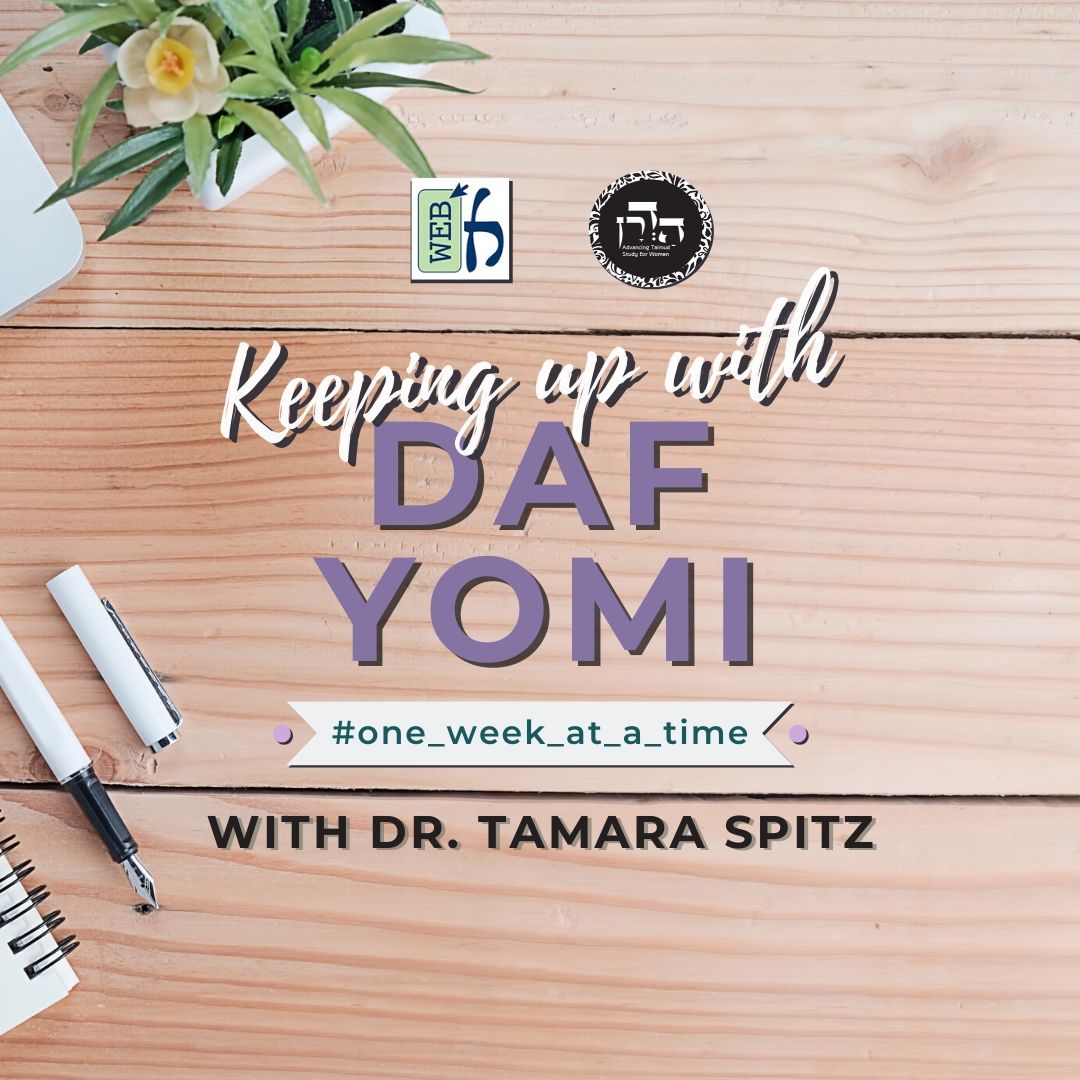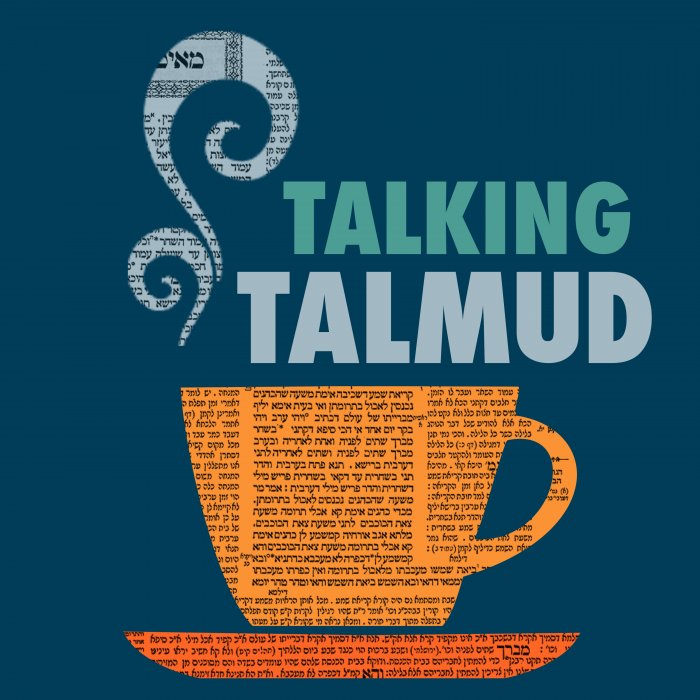Bava Batra 149
״יֵהָנֶה בָּהֶן״, מַהִי? דְּנֶיהְוֵי כּוּלְּהוּ מַתָּנָה קָאָמַר, אוֹ דִלְמָא לִיתְהֲנֵי מִינַּיְיהוּ מִידֵּי קָאָמַר? ״יֵרָאֶה בָּהֶן״, מַהוּ? ״יַעֲמוֹד בָּהֶן״, מַהוּ? ״יִשָּׁעֵן בָּהֶן״, מַהוּ? תֵּיקוּ.
If a person on his deathbed says: So-and-so shall benefit from my property, what is the halakha? Is he saying that all of the property shall be a gift? Or perhaps he is saying that the recipient shall derive some benefit from the property. If he says: So-and-so shall be seen in my property, what is the halakha? If he says: So-and-so shall stand in my property, what is the halakha? If he says: So-and-so shall rely on my property, what is the halakha? The Gemara concludes: All these dilemmas shall stand unresolved.
אִיבַּעְיָא לְהוּ: מָכַר כׇּל נְכָסָיו, מַהוּ? אָמַר רַב יְהוּדָה אָמַר רַב: אִם עָמַד אֵינוֹ חוֹזֵר. וְזִימְנִין אָמַר רַב יְהוּדָה אָמַר רַב: אִם עָמַד חוֹזֵר. וְלָא פְּלִיגִי: הָא דְּאִיתַנְהוּ לְזוּזִי בְּעֵינַיְיהוּ, הָא דְּפַרְעִינְהוּ בְּחוֹבוֹ.
A dilemma was raised before the Sages: If a person on his deathbed sold all of his property, what is the halakha? Rav Yehuda says that Rav says: If he recovers, he cannot retract the sale. And at times, Rav Yehuda said that Rav said: If he recovers, he can retract the sale. And these statements do not disagree. This statement, that he can retract the sale, applies in a case where the dinars he received as payment are still extant, i.e., in his possession. That statement, that he cannot retract the sale, applies in a case where he paid his debt with those dinars.
אִיבַּעְיָא לְהוּ: שְׁכִיב מְרַע שֶׁהוֹדָה, מַהוּ? תָּא שְׁמַע, דְּאִיסּוּר גִּיּוֹרָא הֲוָה לֵיהּ תְּרֵיסַר אַלְפֵי זוּזֵי בֵּי רָבָא. רַב מָרִי בְּרֵיהּ – הוֹרָתוֹ שֶׁלֹּא בִּקְדוּשָּׁה, וְלֵידָתוֹ בִּקְדוּשָּׁה הֲוַאי; וּבֵי רַב הֲוָה.
§ A dilemma was raised before the Sages: In the case of a person on his deathbed who admitted that he owed money to a certain person, where it was possible that he did not actually owe him money, what is the halakha? Does his admission qualify as the gift of a person on his deathbed? The Gemara answers: Come and hear a proof, as Issur the convert had twelve thousand dinars deposited in the house of Rava. Rav Mari, Issur’s son, whose conception was not in the sanctity of the Jewish people, i.e., he was conceived before his father converted, but his birth was in the sanctity of the Jewish people, i.e., he was born after his father converted, was in a study hall elsewhere when his father was on his deathbed.
אָמַר רָבָא: הֵיכִי נִיקְנִינְהוּ רַב מָרִי לְהָנֵי זוּזֵי? אִי בִּירוּשָׁה – לָאו בַּר יְרוּשָּׁה הוּא. אִי בְּמַתָּנָה – מַתְּנַת שְׁכִיב מְרַע כִּירוּשָּׁה שַׁוְּיוּהָ רַבָּנַן; כׇּל הֵיכָא דְּאִיתֵיהּ בִּירוּשָׁה – אִיתֵיהּ בְּמַתָּנָה, כֹּל הֵיכָא דְּלֵיתֵיהּ בִּירוּשָׁה – לֵיתֵיהּ בְּמַתָּנָה.
Rava reasoned that he would acquire possession of the deposit for himself, as he said: How can Rav Mari acquire these dinars? If he attempts to acquire the money as inheritance, he is not fit to inherit from Issur. Since he was conceived before his father converted, he is therefore not halakhically considered his son. If he attempts to acquire it as a gift, the Sages equated the halakhic status of the gift of a person on his deathbed with that of inheritance. Therefore, anywhere that the property can be acquired as inheritance, it can also be acquired as a gift, and anywhere that the property cannot be acquired as inheritance, it cannot be acquired as a gift.
אִי בִּמְשִׁיכָה – לֵיתַנְהוּ גַּבֵּיהּ. אִי בַּחֲלִיפִין – אֵין מַטְבֵּעַ נִקְנֶה בַּחֲלִיפִין. אִי אַגַּב קַרְקַע – לֵית לֵיהּ אַרְעָא. אִי בְּמַעֲמַד שְׁלָשְׁתָּן – אִי שָׁלַח לִי לָא אָזֵילְנָא.
If he attempts to acquire the dinars by pulling them, which is a formal act of acquisition, he will not be able to do this, as the dinars are not with him. If he attempts to acquire them by means of symbolic exchange, a pro forma act of acquisition effecting the transfer of ownership of an article, money cannot be acquired by means of symbolic exchange. If he attempts to acquire them by means of the acquisition of land, Issur does not have any land. If he attempts to acquire them by means of verbal instruction made by his father in the presence of all three parties, i.e., the giver, the recipient, and the bailee, if he sends for me, the bailee, I shall not go, as without the presence of the bailee he cannot transfer ownership of the money.
מַתְקֵיף לַהּ רַב אִיקָא בְּרֵיהּ דְּרַב אַמֵּי: אַמַּאי? וְלוֹדֵי אִיסּוּר דְּהָלֵין זוּזֵי דְּרַב מָרִי נִינְהוּ, וְלִיקְנִינְהוּ בְּאוֹדִיתָא! אַדְּהָכִי, נְפַק אוֹדִיתָא מִבֵּי אִיסּוּר. אִיקְּפַד רָבָא, אָמַר: קָא מַגְמְרִי טַעֲנָתָא לְאִינָשֵׁי, וּמַפְסְדִי לִי.
Rav Ika, son of Rav Ami, objected to this: Why is Rav Mari unable to acquire the money? But why not let Issur admit that these dinars are owned by Rav Mari, and he shall transfer ownership of them to Rav Mari by means of a document of admission? In the meantime, a document of admission stating that the dinars belonged to Rav Mari emerged from Issur’s house. Rava became angry, and said: They are teaching people legal claims and causing me loss. In any event, this incident proves that the admission of a person on his deathbed is a valid means of transferring ownership.
שִׁיֵּיר קַרְקַע כׇּל שֶׁהוּא – מַתְּנָתוֹ קַיֶּימֶת. וְכַמָּה ״כׇּל שֶׁהוּא״? אָמַר רַב יְהוּדָה אָמַר רַב: קַרְקַע כְּדֵי פַרְנָסָתוֹ. וְרַב יִרְמְיָה בַּר אַבָּא אָמַר: מְטַלְטְלִין כְּדֵי פַרְנָסָתוֹ.
§ The mishna teaches (146b): If a person on his deathbed reserved for himself any amount of land, his gift stands even if he subsequently recovers. The Gemara asks: And how much is meant by the term: Any amount? Rav Yehuda says that Rav says: This means land that is sufficient to provide for his livelihood. Since he reserved this land for himself, one can assume that he wished to transfer the rest of his property in any event. And Rav Yirmeya bar Abba says: Even if he reserved for himself movable property that is sufficient to provide for his livelihood, his gift is valid.
אָמַר רַבִּי זֵירָא: כַּמָּה מְכַוְּונָן שְׁמַעְתָּתָא דְסָבֵי; קַרְקַע טַעְמָא מַאי – דְּאִי קָאֵי סָמֵיךְ עֲלֵיהּ; מִטַּלְטְלִי נָמֵי – אִי קָאֵי סָמֵיךְ עִילָּוַיְהוּ.
Rabbi Zeira said: How meticulous are the halakhic statements of the elders Rav Yehuda and Rav Yirmeya. With regard to land, what is the reason that he must have reserved enough for his livelihood? The reason is that if he recovers he will rely on that land for his livelihood. With regard to movable property as well, if he recovers he will rely on it for his livelihood.
מַתְקֵיף לַהּ רַב יוֹסֵף: וּמַאי כַּוּוֹנְתָּא? מַאן דְּאָמַר מְטַלְטְלִין – ״קַרְקַע״ תְּנַן! מַאן דְּאָמַר: כְּדֵי פַרְנָסָתוֹ – ״כׇּל שֶׁהוּא״ תְּנַן!
Rav Yosef objects to Rabbi Zeira’s statement: What is meticulous about these statements? The statement of the one who says the gift is valid even if he reserved for himself movable property is difficult, as we learn in the mishna that he must leave himself land. The statement of the one who says that he must leave himself an amount sufficient to provide for his livelihood is difficult, as we learn in the mishna that his gift is valid if he reserved for himself any amount.
אֲמַר לֵיהּ אַבָּיֵי: וְכׇל הֵיכָא דְּתָנֵי ״קַרְקַע״ – קַרְקַע דַּוְקָא? וְהָא תְּנַן: הַכּוֹתֵב כׇּל נְכָסָיו לְעַבְדּוֹ – יָצָא בֶּן חוֹרִין. שִׁיֵּיר קַרְקַע כָּל שֶׁהוּא, לֹא יָצָא בֶּן חוֹרִין. רַבִּי שִׁמְעוֹן אוֹמֵר: לְעוֹלָם הוּא בֶּן חוֹרִין, עַד שֶׁיֹּאמַר: ״כׇּל נְכָסַי נְתוּנִין לִפְלוֹנִי עַבְדִּי, חוּץ מֵאֶחָד מֵרִבּוֹא שֶׁבָּהֶן״.
Abaye said to Rav Yosef: And anywhere that the term land is taught, does it mean specifically land? But didn’t we learn in a mishna (Pe’a 3:8): With regard to one who writes, i.e., gives via a document, all of his property to his Canaanite slave, the slave has been emancipated, but if he reserved for himself any amount of land, then he has not been emancipated, as perhaps he reserved the slave for himself as well. Rabbi Shimon says: He always becomes a freeman regardless of the wording of the document, even if the owner reserved land for himself, unless it says in the document: All of my property is given to so-and-so my slave, except for one ten-thousandth of it, as in that case it is possible that the master meant to include the slave in the portion that he is not giving away. Consequently, the slave is not emancipated.
























